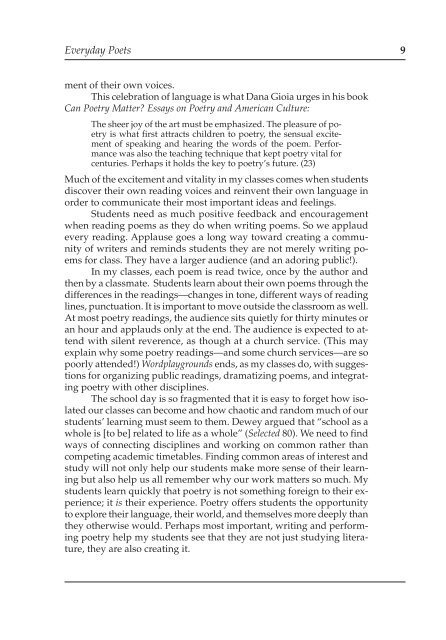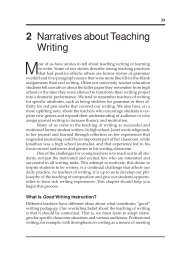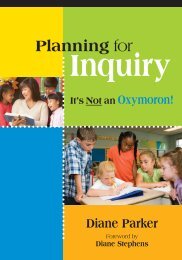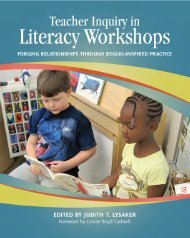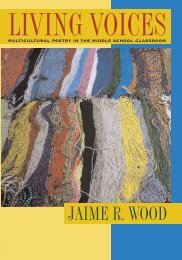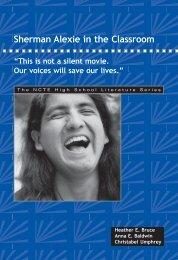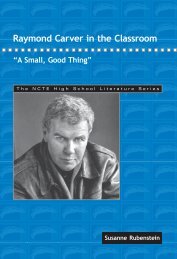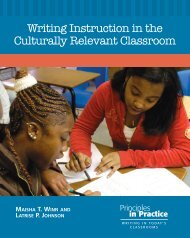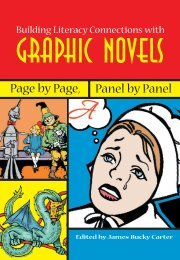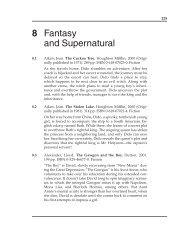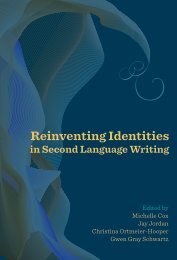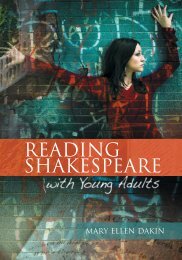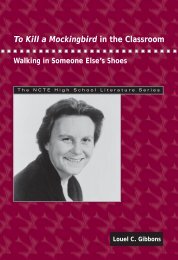1 Everyday Poets
1 Everyday Poets
1 Everyday Poets
Create successful ePaper yourself
Turn your PDF publications into a flip-book with our unique Google optimized e-Paper software.
<strong>Everyday</strong> <strong>Poets</strong> 9ment of their own voices.This celebration of language is what Dana Gioia urges in his bookCan Poetry Matter? Essays on Poetry and American Culture:The sheer joy of the art must be emphasized. The pleasure of poetryis what first attracts children to poetry, the sensual excitementof speaking and hearing the words of the poem. Performancewas also the teaching technique that kept poetry vital forcenturies. Perhaps it holds the key to poetry’s future. (23)Much of the excitement and vitality in my classes comes when studentsdiscover their own reading voices and reinvent their own language inorder to communicate their most important ideas and feelings.Students need as much positive feedback and encouragementwhen reading poems as they do when writing poems. So we applaudevery reading. Applause goes a long way toward creating a communityof writers and reminds students they are not merely writing poemsfor class. They have a larger audience (and an adoring public!).In my classes, each poem is read twice, once by the author andthen by a classmate. Students learn about their own poems through thedifferences in the readings—changes in tone, different ways of readinglines, punctuation. It is important to move outside the classroom as well.At most poetry readings, the audience sits quietly for thirty minutes oran hour and applauds only at the end. The audience is expected to attendwith silent reverence, as though at a church service. (This mayexplain why some poetry readings—and some church services—are sopoorly attended!) Wordplaygrounds ends, as my classes do, with suggestionsfor organizing public readings, dramatizing poems, and integratingpoetry with other disciplines.The school day is so fragmented that it is easy to forget how isolatedour classes can become and how chaotic and random much of ourstudents’ learning must seem to them. Dewey argued that “school as awhole is [to be] related to life as a whole” (Selected 80). We need to findways of connecting disciplines and working on common rather thancompeting academic timetables. Finding common areas of interest andstudy will not only help our students make more sense of their learningbut also help us all remember why our work matters so much. Mystudents learn quickly that poetry is not something foreign to their experience;it is their experience. Poetry offers students the opportunityto explore their language, their world, and themselves more deeply thanthey otherwise would. Perhaps most important, writing and performingpoetry help my students see that they are not just studying literature,they are also creating it.


